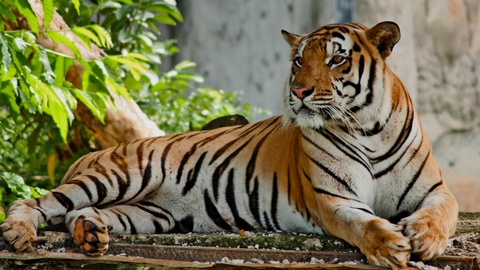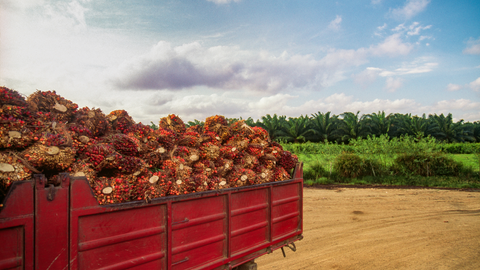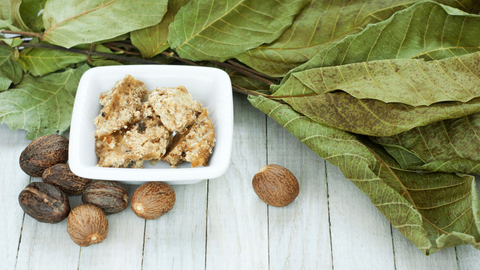Preserving Wildlife and Empowering Communities

Palm oil, a highly versatile and widely used ingredient, has become a subject of concern due to its association with unsustainable production practices and the devastating impact it has on tropical wildlife biodiversity. According to the Tropical Conservation Fund, unsustainable palm oil production has led to the extinction of numerous species, pushing endangered animals closer to the brink. As we delve deeper into this issue, we will explore the intricate relationship between palm oil and the African Black Soap industry, recognizing the critical role sustainable fair trade practices play in preserving our natural heritage. By focusing on sourcing palm oil from Africa, we aim to shed light on how sustainable alternatives can mitigate the threats posed to tropical wildlife.
Understanding the Impact of Unsustainable Palm Oil Production

Unsustainable palm oil production has wreaked havoc on our planet's delicate ecosystems, causing severe environmental consequences. One of the most alarming outcomes is deforestation. Vast areas of tropical rainforests, particularly in Southeast Asia, have been cleared to make way for palm oil plantations. This rampant deforestation not only destroys the habitats of countless plant and animal species but also contributes to climate change by releasing massive amounts of carbon dioxide into the atmosphere.
Habitat destruction goes hand in hand with deforestation, as palm oil plantations replace diverse and complex ecosystems with monoculture landscapes. This loss of habitat has catastrophic effects on biodiversity, pushing numerous species to the brink of extinction. The Tropical Conservation Fund's article highlights the heartbreaking reality of palm oil-related extinctions, shedding light on the devastating impact on iconic animals such as orangutans, Sumatran tigers, and Bornean pygmy elephants.
Additionally, the World Wildlife Fund (WWF) provides valuable insights into the specific examples and statistics of palm oil-related extinctions. Their research underscores the urgent need to address unsustainable palm oil production to protect endangered species and preserve our planet's rich biodiversity.
It is crucial to grasp the gravity of these environmental consequences and take immediate action to combat unsustainable palm oil production. By understanding the extent of the problem, we can work towards finding sustainable solutions that safeguard both wildlife and their habitats.
Endangered Species Threatened by Unsustainable Palm Oil

The link between unsustainable palm oil production and the endangerment of wildlife is undeniable, as the destruction of natural habitats for palm oil plantations poses a grave threat to numerous species.
According to the World Wildlife Fund (WWF) and the Tropical Conservation Fund, several iconic and lesser-known species have been profoundly affected by palm oil-related habitat loss and fragmentation.
- Orangutans: These intelligent and gentle apes, found in Southeast Asia, have experienced significant population declines due to the destruction of their forest homes.
- Sumatran Tigers: Native to Indonesia, these magnificent big cats face a perilous future as palm oil plantations encroach upon their habitats and disrupt their natural hunting grounds.
- Bornean Pygmy Elephants: Endemic to Borneo, these enchanting creatures have encountered severe habitat loss, leading to increased conflicts with humans and fragmentation of their populations.
- Sumatran Rhinoceros: With fewer than 80 individuals remaining in the wild, this critically endangered species faces the brink of extinction due to palm oil-related habitat destruction.
- Sumatran Orangutan: Similar to its Bornean counterpart, the Sumatran orangutan has suffered substantial population declines and habitat degradation as a result of unsustainable palm oil practices.
- Clouded Leopards: These elusive feline predators, inhabiting Southeast Asian forests, are threatened by habitat loss and fragmentation caused by palm oil expansion.
- Sunda Pangolins: These unique and highly threatened mammals, known for their scales and insectivorous diet, have seen their populations dwindle due to palm oil-related deforestation and illegal trade.
These species represent just a fraction of the wide-ranging impact of unsustainable palm oil production on tropical wildlife. Urgent action is needed to protect their habitats and ensure their survival, highlighting the importance of supporting sustainable practices and seeking alternatives in industries such as the African Black Soap market.
Sustainable Palm Oil in African Black Soap Production

The concept of sustainable fair trade practices revolves around ethical sourcing and production methods that prioritize environmental conservation and support local communities.
It is crucial to support businesses that prioritize sustainable sourcing of palm oil, particularly from Africa, as this encourages responsible land use and safeguards tropical ecosystems.
African Black Soap, when made with sustainably sourced palm oil, contributes to environmental conservation by reducing deforestation and habitat destruction. Additionally, it supports local communities by promoting fair trade practices, empowering small-scale farmers, and fostering economic development in African regions where palm oil is produced.
Our Commitment to Sustainable Fair Trade African Black Soap

At Ziger Naturals, we are dedicated to offering sustainable fair trade African Black Soap, and our mission is deeply rooted in environmental conservation and community empowerment.
We prioritize sourcing practices that revolve around sustainability, ensuring that the palm oil used in our African Black Soap comes from reputable African suppliers who follow responsible cultivation and harvesting methods. By partnering with these suppliers, we support sustainable land management practices that minimize deforestation and protect vital wildlife habitats.
By choosing our sustainable fair trade African Black Soap, customers have the power to make a positive impact. Every purchase contributes to the preservation of tropical ecosystems, the protection of endangered species, and the empowerment of local African communities. Moreover, supporting our product means supporting a transparent supply chain that values fair wages, ethical practices, and social responsibility.
Together, we can make a difference. Join us in our commitment to sustainability, fair trade, and the protection of wildlife biodiversity by choosing Ziger Naturals' sustainable fair trade African Black Soap. Together, we can create a more sustainable future for our planet and its precious ecosystems.




